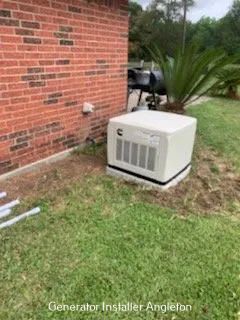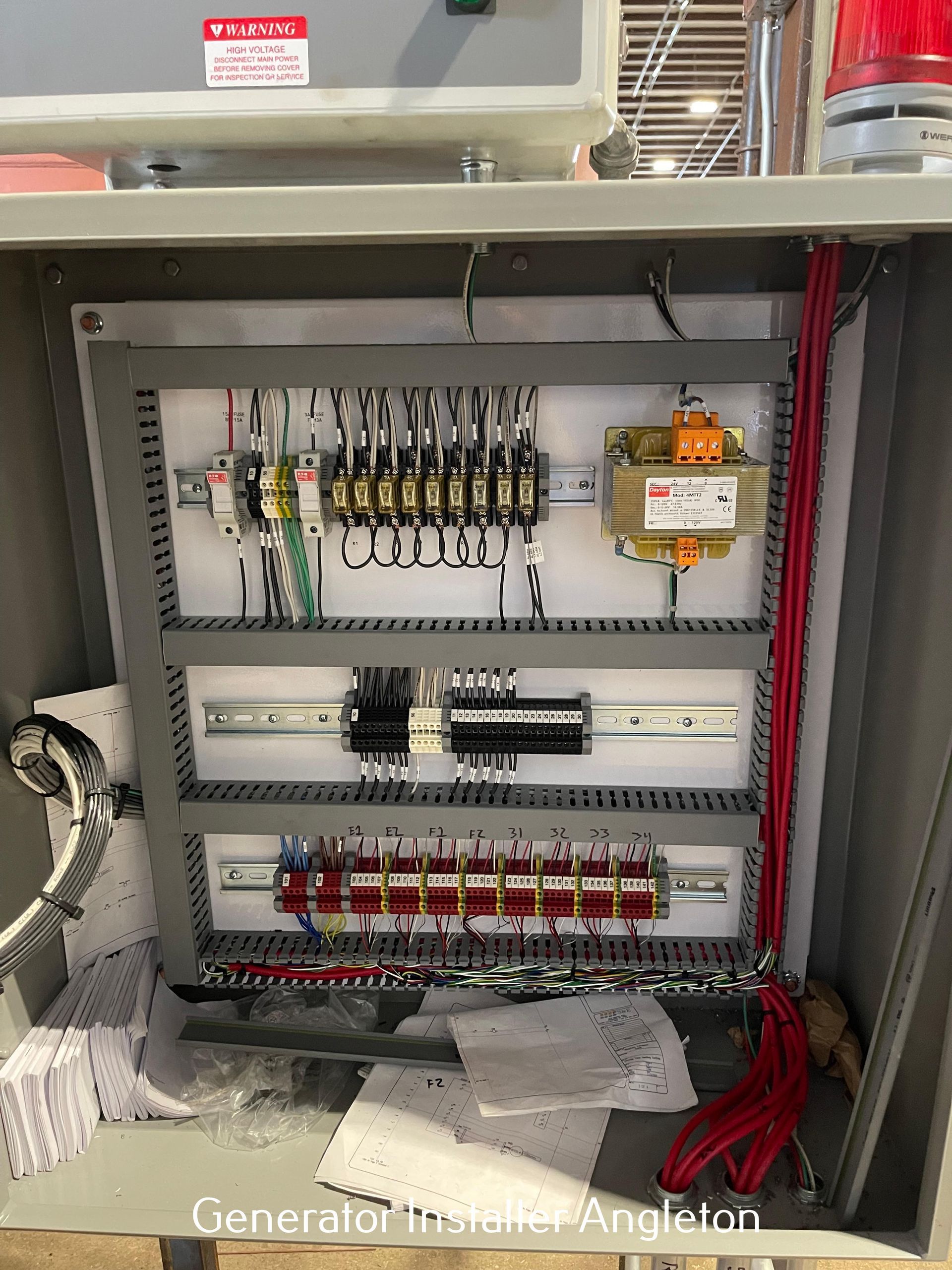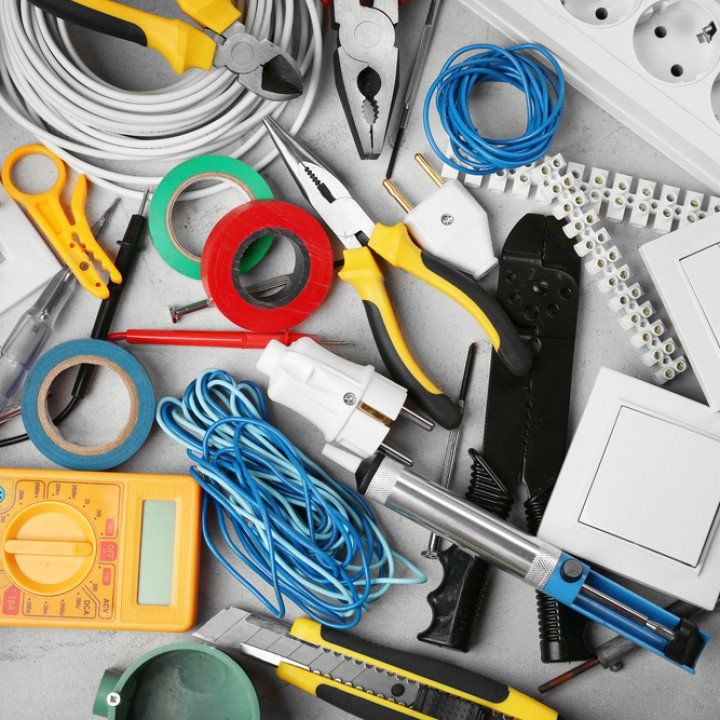How to Choose the Right Generator for Your Home
When it comes to ensuring an uninterrupted power supply in your home, one of the most reliable solutions is investing in a generator. However, choosing the right generator for your home is not as simple as picking the first model you see on the shelf. It requires careful consideration of various factors, including your power needs, budget, and the generator's features. Understanding the need for a generator is the first step toward making an informed decision.
Generators serve as a backup power source during power outages, ensuring that essential appliances and systems in your home continue to function. They can power everything from lights and refrigerators to heating and cooling systems. Beyond emergencies, generators also provide a reliable power source for off-grid living or outdoor activities like camping. However, not all generators are created equal. There are different types of generators available in the market, each with its unique features and specifications.
The most common types are standby generators, portable generators, and inverter generators. Standby generators are permanently installed and automatically start when the power goes out. Portable generators are smaller, movable units that need to be manually started and can provide power to select appliances. Inverter generators are a newer, quieter, and more efficient option, ideal for sensitive electronics. In the following sections, we will delve deeper into how to evaluate these types and
choose the right generator for your home. Strategic Electrical Solutions, LLC is a well-known company in Texas for electrical services, and will guide you through some steps on how to choose the right generator for your home!
Understanding Your Power Needs
The next step in choosing the right generator for your home is understanding your power needs. This involves determining which appliances and systems in your home are essential and require power during an outage. These could include your refrigerator, heating and cooling systems, sump pump, and lighting. It’s also worth considering any medical equipment that needs power, as well as devices necessary for work-from-home setups. Each of these appliances has a specific wattage, or power requirement, which can often be found on the appliance itself or in its manual. Adding up the wattage of all these essential appliances will give you an estimate of your home's total power requirement.
However, it's important to note that some appliances require more power to start up than they do to keep running. These are known as 'starting watts' and 'running watts' respectively. For instance, a refrigerator might need 1200 watts to start but only 200 watts to run. Therefore, when determining your power needs, you should consider not only the running watts but also the starting watts. Calculating your total power needs is not just about adding up the wattage of all your appliances. It's also about understanding how you use these appliances. If you use multiple high-wattage appliances simultaneously, you'll need a generator with a higher total wattage.
Conversely, if you stagger the use of your appliances, you might be able to manage with a lower-wattage generator. This step also involves thinking about how often and for how long you'll need to use the generator.
In conclusion, understanding your power needs involves a careful evaluation of your essential appliances and their wattage, as well as your usage patterns. This will ensure that you choose the
right generator for your home
that can adequately and efficiently power your home during an outage.
Types of Generators
Moving forward from the assessment of your power needs, it is essential to understand the different types of generators available, their features, and their benefits, to make an informed choice. The three major types of generators are standby generators, portable generators, and inverter generators.
Standby Generators
Standby generators are permanently installed outside your home and operate like a central air conditioning system but with more power. They start automatically during power outages and provide uninterrupted backup power for all your appliances. Standby generators run on natural gas or liquid propane and are more powerful, making them suitable for larger homes or businesses. However, they are more expensive and require professional installation.
Portable Generators
Portable generators, on the other hand, are smaller, less expensive, and can be moved to different locations. They often run on gasoline, making them ideal for outdoor activities such as camping and tailgating. When used for home backup power, you need to manually start them and plug in appliances or a subpanel. It's important to note that portable generators should always be used outdoors due to the risk of carbon monoxide poisoning.
Inverter Generators
Inverter generators are a newer type of generator that provides clean, high-quality power. This makes them perfect for powering sensitive electronic devices like laptops and TVs. They are highly efficient and quiet, making them a favorite for recreational uses. However, they have a lower power output and are more expensive per watt than portable generators.
Each type of generator has its own set of features and benefits. Standby generators offer convenience and robust power output, portable generators offer flexibility and affordability, and inverter generators offer quiet operation and clean power. The right choice will ultimately depend on your specific power needs, budget, and priorities. If you need more detailed help contact Strategic Electrical Solutions, LLC!
Fuel Types and Their Considerations
Continuing from our exploration of different types of generators, another crucial factor to consider in choosing the right generator for your home is the type of fuel it uses. Generators typically run on gasoline, diesel, propane, or natural gas, each having distinct characteristics that could greatly impact the operation, cost, and environmental footprint of the generator.
Gasoline Generators
Gasoline generators are quite common due to the widespread availability of gasoline. They are usually cost-effective to purchase but may prove expensive in the long run due to the high cost of fuel. Additionally, gasoline has a short shelf life and can be difficult to store safely over extended periods.
Diesel Generators
On the other hand, diesel generators are known for their efficiency and longevity. Diesel fuel is less flammable than gasoline, which makes it safer to store. However, diesel generators tend to be noisier and produce more emissions, which may not make them the ideal choice if you're environmentally conscious or live in an area with strict emissions regulations.
Propane Generators
Propane generators offer a cleaner option. They run more quietly and produce fewer emissions than their gasoline or diesel counterparts. Propane also has an indefinite shelf life, making it an excellent option for infrequent use. However, propane is less energy-dense than other fuels, meaning a propane generator might consume more fuel to produce the same amount of power.
Natural Gas Generators
Natural gas generators, while less common in residential settings, offer a unique advantage in that they can be connected to the municipal gas supply, eliminating the need for fuel storage.
These generators are also low-emission options. However, the installation can be more complex and costly. When comparing cost, availability, storage, and environmental impact, it's clear that each fuel type has its pros and cons. Gasoline and diesel may be more readily available and provide more power, but they have higher long-term costs and environmental impacts. Propane and natural gas are cleaner and safer, but they may require more planning and infrastructure. Ultimately, the best fuel type for your generator will depend on factors such as your local fuel prices, storage capabilities, noise tolerance, and environmental priorities. Therefore, it is crucial to weigh these considerations carefully before making a decision.
Choosing the Right Size
Understanding the Sizes and Capacities of Generators
Moving past the type of fuel, the next critical step in choosing the right generator for your home involves understanding the sizes and capacities of generators available. Generator sizes are usually categorized by the amount of power they can produce, measured in watts. The size can range from small, portable generators producing around 3000 watts to large, standby generators that can generate 20,000 watts or more. It is essential to remember that the size of the generator doesn't necessarily correlate with its physical dimensions; instead, it's a reflection of the power the generator can supply.
Match your Power Needs with the Generator Size
To determine the right size of a generator for your home, you will need to match your power needs with the generator size. Start by listing all the appliances and systems you would need to keep running during a power outage. This could include essential items such as refrigeration, lighting, and heating or cooling systems, as well as comfort or convenience items like televisions, computers, and other electronics.
Total Power Requirement
Once you have identified your power needs, sum up their watts to get a total power requirement. If you are uncertain, it is always better to overestimate your power needs to avoid overloading your generator. Remember, the more devices you need to power, the larger the generator you will need. However, a very large generator may not be the most efficient choice if you only need to power a few key systems.
Therefore, it's all about finding the balance between your power needs and the generator's capacity. Once you have a clear understanding of your power requirements, you can confidently choose a generator that fits your needs, ensuring you are never left in the dark. If you need professional advice, reach out to Strategic Electrical Solutions, LLC in Angleton TX our team of specialists will guide you to make the right decision .
Safety Considerations
Well-Ventilated Area
After identifying the right size of the generator for your home, it's paramount you consider safety measures. It's not enough to just purchase the right generator; careful installation and placement are crucial. The generator needs to be installed in a well-ventilated area to prevent overheating and potential fire. Strategic Electrical Solutions, LLC is renowned for providing expert advice and top-notch installation services for generators that are perfectly tailored to meet your needs. Avoid placing it near flammable materials or enclosed spaces where heat can build up. It's highly advisable to hire a professional electrician for installation to ensure all safety protocols are followed and your home's electrical system isn't compromised.
Carbon Monoxide Detectors
In addition to careful placement and installation, having carbon monoxide detectors in your home is vital when using a generator. Generators emit carbon monoxide, a deadly odorless and colorless gas. Without a detector, it's impossible to know if the levels of this gas have risen dangerously high in your home. Ensure the detectors are installed near the generator and in areas where your family spends the most time. Regularly check and replace batteries to ensure they're always operational.
Maintenance
Maintenance is another critical safety consideration when it comes to home generators. Regular inspections and maintenance can help identify potential issues before they become serious problems, reducing the risk of unexpected breakdowns during power outages. Always follow the manufacturer’s guidelines for maintenance, which typically include regular oil changes, filter replacements, and thorough inspections of all parts. It's also important to test your generator periodically to ensure it's ready to go when you need it most. By following these safety considerations, you can ensure your generator operates smoothly and safely, providing much-needed power during outages without any additional risks.
Cost and Installation
Continuing from our safety considerations, it's also essential to understand the financial aspects involved when choosing the right generator for your home. This includes not only the initial cost of the generator but also the associated installation and ongoing maintenance costs. Generators come in a wide range of prices depending on their capabilities. Smaller, portable generators may only cost a few hundred dollars, whereas larger, standby generators can range into the thousands. It's crucial to assess your power needs accurately to avoid overspending on a generator with more capacity than you need or underspending on one that won't meet your requirements.
Installation Costs
The installation process of a generator can also incur significant costs. Standby generators, for instance, require professional installation due to their complexity. This includes setting up the generator, connecting it to your home's electrical system and ensuring it complies with local codes and regulations. Portable generators, on the other hand, are easier to install but still require some setup and safety considerations.
Ongoing Maintenance Costs
Maintenance costs are another factor to consider. Regular upkeep, such as oil changes, filter replacements, and comprehensive inspections, is vital to ensure the longevity and reliability of your generator. Depending on the type and size of your generator, these costs can add up over time. Therefore, it's essential to factor in these ongoing costs when budgeting for your home generator. In conclusion, while the right generator can provide invaluable peace of mind and convenience, it's crucial to understand the full range of costs involved. By doing so, you can make an informed decision that best fits your needs and budget. For an efficient professional consultation contact Strategic Electrical Solutions, LLC in Angleton TX your trusted company for generators needs.
Conclusion
To cap it all, the selection of the right generator for your home is not a task to be taken lightly. It requires a thorough understanding of various factors that range from the initial cost of the generator, the complexity, and cost of the installation process, to the ongoing maintenance expenses. These elements play a pivotal role in determining the overall cost-effectiveness of your investment, hence, should not be overlooked.
Firstly, you must remember that the price of generators varies greatly depending on their size, type, and brand. It's not just the upfront cost of the generator you need to factor in, but also the installation process and the maintenance costs. Installation can be complex and costly, especially for larger, standby generators. Therefore, it's imperative to get a professional's opinion before making your decision.
Secondly, maintenance is a crucial part of owning a generator. Regular upkeep not only prolongs the life of your generator but also ensures that it functions reliably when you need it the most. It's important to be aware that these costs can accumulate over time and should be incorporated into your budget.
In conclusion, the process of choosing the right generator for your home is a delicate balancing act. It is essentially about matching the generator to your specific needs and budget. Remember, investing in a generator is not just about buying a machine; it's about investing in a source of power that ensures the comfort and safety of your home during power outages. Therefore, make sure to consider all the relevant factors before making your final decision and for all your doubts in choosing the right generator contact Strategic Electrical Solutions, LLC in Angleton TX to guide you through it.
Name, Address, and Phone
Strategic Electrical Solutions, LLC
23111 Harris Dr, Angleton, Texas, 77515, US
(979) 612-2496
Social Media’s
https://www.facebook.com/profile.php?id=100090600199683







